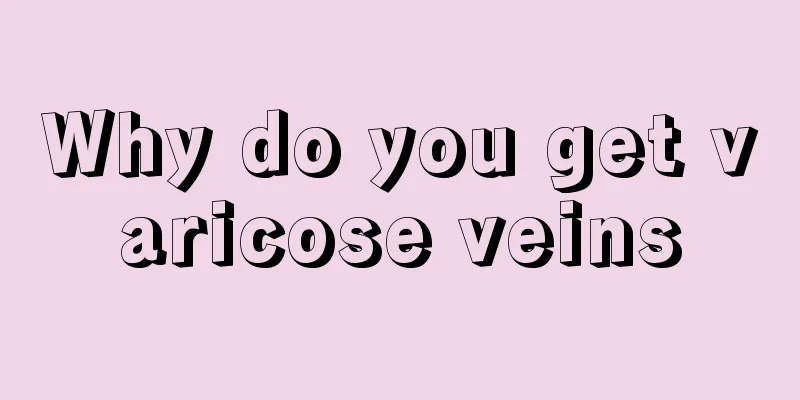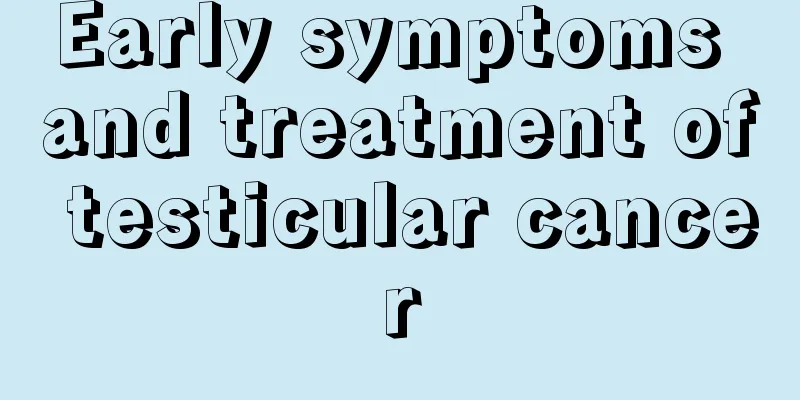Why do you get varicose veins

|
Varicose veins are a very common disease in daily life. It not only causes great harm to the patient's physical health, but also seriously affects their normal life and work. Therefore, it is particularly important to understand its cause and do preventive work in advance. The most common causes are femoral saphenous vein valvular insufficiency and primary deep venous valvular insufficiency of the lower extremities. 1. Varicose veins Varicose veins refer to the tortuosity and dilation of veins due to factors such as blood stasis and weak venous walls. Varicose veins can occur in many parts of the body. For example, hemorrhoids are actually a type of varicose veins. Other clinically visible varicose veins include esophageal varicose veins, varicocele, abdominal wall varicose veins, etc. The most common site of varicose veins is the lower extremities. It is worth emphasizing that varicose veins themselves may be a secondary manifestation of other lesions, such as vena cava occlusion, and the primary disease should be actively treated. 2. Why do varicose veins occur? There are many causes of varicose veins in the lower limbs, the most common of which is simple superficial varicose veins in the lower limbs, the main cause of which is the insufficiency of the femoral saphenous vein valve. Another important cause is primary deep venous insufficiency (PDVI) of the lower extremities, which is often combined with great saphenous vein valvular insufficiency and often manifests as tortuous dilatation of the superficial veins. In addition, post-deep vein thrombosis syndrome in the lower limbs causes compensatory tortuous dilatation of the superficial veins due to poor deep vein reflux; lower limb arteriovenous fistula and venous malformation hypertrophy syndrome can also present with varicose veins of the lower limbs; obstruction of inferior vena cava reflux, such as Budd-Chiari syndrome, can also lead to varicose veins of the lower limbs. According to the cause, varicose veins are divided into primary varicose veins and secondary varicose veins. 3. Treatment Methods In addition to wearing elastic stockings, traditional high ligation of the great saphenous vein, varicose vein stripping, laser, radiofrequency, rotary resection, and sclerosing agent refraction, the treatment of varicose veins in the lower limbs also includes some drugs for auxiliary treatment: such as diosmin tablets. In many foreign guidelines for the treatment of chronic venous diseases of the lower limbs, drug treatment is the basis, and pressure therapy with elastic stockings is consolidation. There are many surgical treatment methods, which need to be decided according to the specific situation of the patient. Currently, radiofrequency treatment has also become a new minimally invasive method and will be promoted in China. Sclerotherapy is not suitable for every patient. Although it has obvious advantages, the indications must be strictly controlled. |
>>: Inferior vena varicose vein
Recommend
Is asthma cough contagious?
Asthma is a relatively serious disease. This dise...
What is radiotherapy for lymphoma
In recent years, lymphoma has become one of the m...
What is the cause of bleeding gums
If we suffer from oral diseases, we will experien...
Will nerve damage caused by anesthesia heal on its own?
Generally speaking, during surgery, in order to a...
What are the symptoms of lung cancer? 6 small symptoms to beware of lung cancer
Early lung cancer patients will send out some dan...
Why do I want to sleep after a meal?
It is an old saying that when you are full you wi...
How is the bone tumor treatment technology?
With the advancement of surgical, chemotherapy, a...
What is vomiting due to cerebral infarction
Cerebral infarction was originally a common disea...
Can inverted eyelashes heal themselves?
When inverted eyelashes occur, people will feel v...
What is the diagnostic order of melanoma
Biopsy is an effective means of diagnosing malign...
Is laryngeal cancer surgery open surgery or minimally invasive surgery
For laryngeal cancer patients who are in the earl...
Edible fungi can cure all diseases
There are many kinds of edible fungi, most of whi...
The dangers of eyelash extensions
Although eyelashes are not very noticeable in our...
Can squatting help slim down your legs?
In fact, squatting can help you slim down your le...
The relationship between lung cancer and smoking
Over the past half century, a large number of epi...









